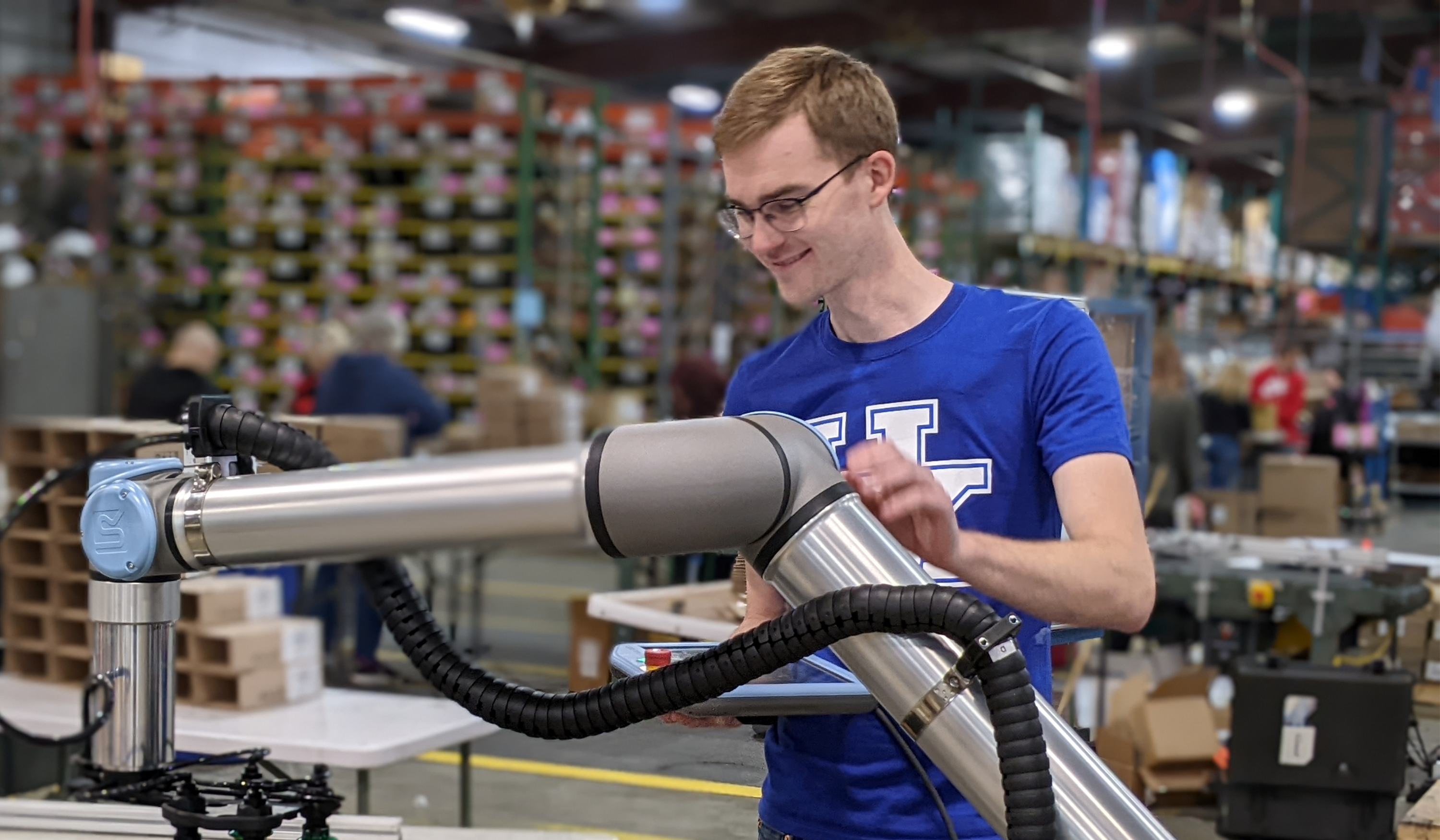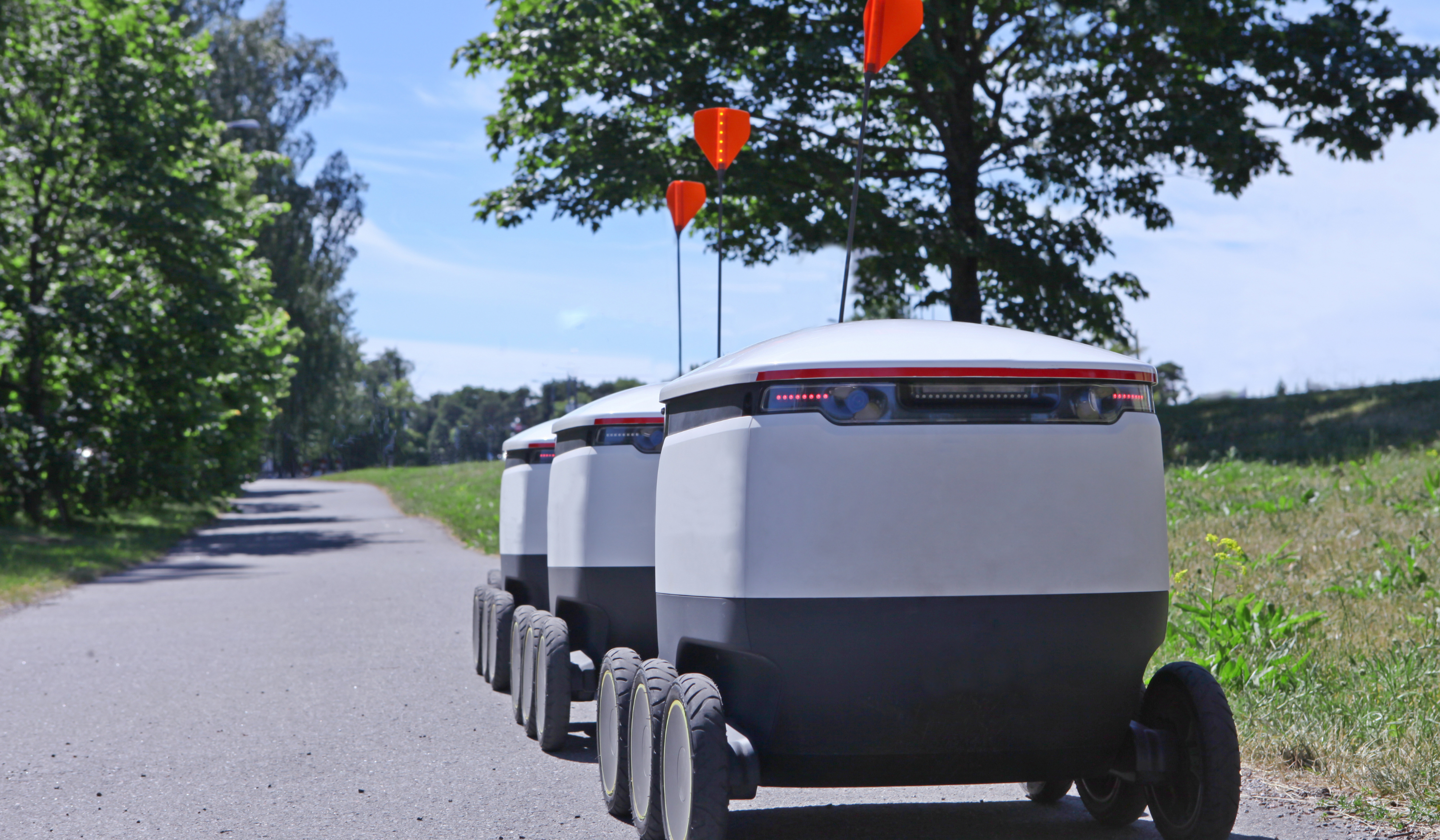Answering 5 Big Objections to Lean Robotics

Posted on Nov 28, 2019 11:02 AM. 5 min read time
"Lean Robotics is a waste of our time" worry some of our users. Does this objection make sense? Here are 5 reasonable objections to LR.
Lean, lean, lean, lean. If you've been working in manufacturing for any length of time, you'll be familiar with unsuccessful "Lean initiatives" … and you might be dubious that Lean Robotics is really worth your time and effort.
Like some of our users, you might be worrying that Lean Robotics is just another empty management "fad." You might even think that it's marketing gimmick which we are using to cynically drive people towards our products (it's not… in fact, Lean Robotics has nothing to do with our products).
We could write this article in such a way that it paints a rosy picture of Lean Robotics, to try to trick you into "realizing its brilliance"… but that would be manipulative and (ultimately) not very helpful for anyone.
Instead, let's look at some objections you might have about Lean Robotics which all certainly make sense.
1. It's a lot of theory
You might look at the Lean Robotics book and think "I can't read all that!" We're all busy people. Reading a book of robotic deployment theory is (understandably) not at the top of everyone's To-Do List.
Lean Robotics is a framework for deploying robots. Like any framework, it involves some theory. However, it's not only theory.
Unlike some other theoretical frameworks — which are produced by academics who have never set foot on a factory floor — Lean Robotics is based on Samuel's hands-on experience helping companies get started with robotics (that's Samuel Bouchard the CEO of Robotiq).
Yes, it involves theory. But, it is very practical.
2. I haven't got time to read the book
I know the feeling. My bookshelves are stacked with books that I haven't read yet. Those books contain vital knowledge that will improve my life and business… but not if I don't read them.
The problem is that unless we "consume the knowledge" written in the books we're never going to be able to use that knowledge to improve what we're doing.
Myself, I've recently found that audiobooks help me immensely to consume new knowledge much more easily than reading a book. I can listen to a book while driving, walking, or cooking. Without audiobooks, I would hardly have read anything in the last 6 months.
We recently released an audiobook version of Lean Robotics. Maybe it'll be helpful for you.
3. Nobody I know is using Lean Robotics
As humans, we only tend to try out new frameworks and strategies if we are recommended them by people we trust. We need proof that it is worth our time and effect.
As a result, no matter what we here at Robotiq tell you, you will want more proof that Lean Robotics is really useful. If nobody you know is using it, you might be concerned if it is really worth your energy.
So don't trust us!
The best way to find out if Lean Robotics really works is to listen to people who are already using it — or parts of it — to deploy their robots. You can hear from some users in our Case Study Library or (even better) ask a question in the DoF Forum. The people in DoF are usually great at telling you what they honestly think.
4. We tried Lean and it didn't work
Maybe you've already suffered from an unsuccessful "Lean initiative" and you're not keen to get burned a second time. This makes a lot of sense. Lean Manufacturing (which is the most familiar type of Lean for many of us) is not always successful.
In fact, most Lean initiatives fail —one study found that only 2% of initiatives achieved their expected results.
It's understandable if a previous bad experience has tainted your view of Lean. Even so, it's important to remember that Lean Robotics is not the same as Lean Manufacturing. For one thing, it doesn't rely on changing your entire business to use it, as other Lean initiatives do. Instead, it is focused on the robot cell. It borrows Lean concepts, but it's much easier to use.
Lean Robotics is not the same as other types of Lean.
5. I've got work to do and can't spend time on Lean Robotics
This is a very understandable objection. Starting something new definitely takes time… and that means spending time that we don't have. If we want to use robots, we want to get them up and running as quickly as possible so that we can get back to the rest of our job.
All of us are busy, aren't we? Sometimes, it's hard to see how we will finish all the tasks that are already on our plate, let alone start an entirely new robotics deployment project that requires us to learn a whole framework to put it in place.
Unfortunately, this desire to get the robot running as soon as possible often leads to problems. People rush to deploy the robot and, in the end, the robot takes much longer to deploy than it should.
This is exactly the reason we created Lean Robotics. It provides the "path of least resistance," allowing you to get your robot up and running as quickly and easily as possible. We've seen many people just like you who have wasted countless hours and excessive effort on their robot deployment. We don't want this to happen to you.
With Lean Robotics, we have provided a way for you to avoid wasting your valuable time on tasks that aren't important … but you do have to "consume the knowledge" before you can use it. If that means listening to the audiobook instead of reading the book, no problem.
Lean Robotics makes your life simpler, not more complex.
But, ultimately, it's up to you if you choose to learn about it or not.
Which of your concerns have we not listed in this article? Tell us in the comments below or join the discussion on LinkedIn, Twitter, Facebook or the DoF professional robotics community.









Leave a comment